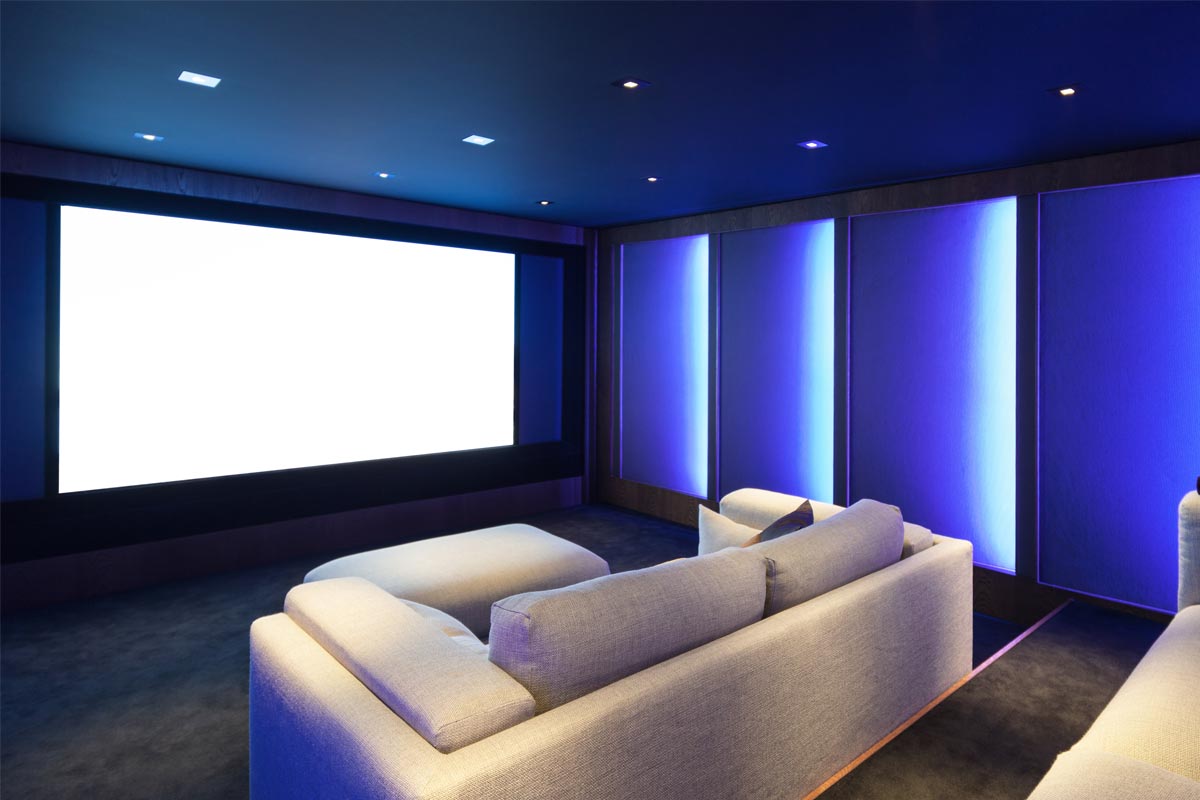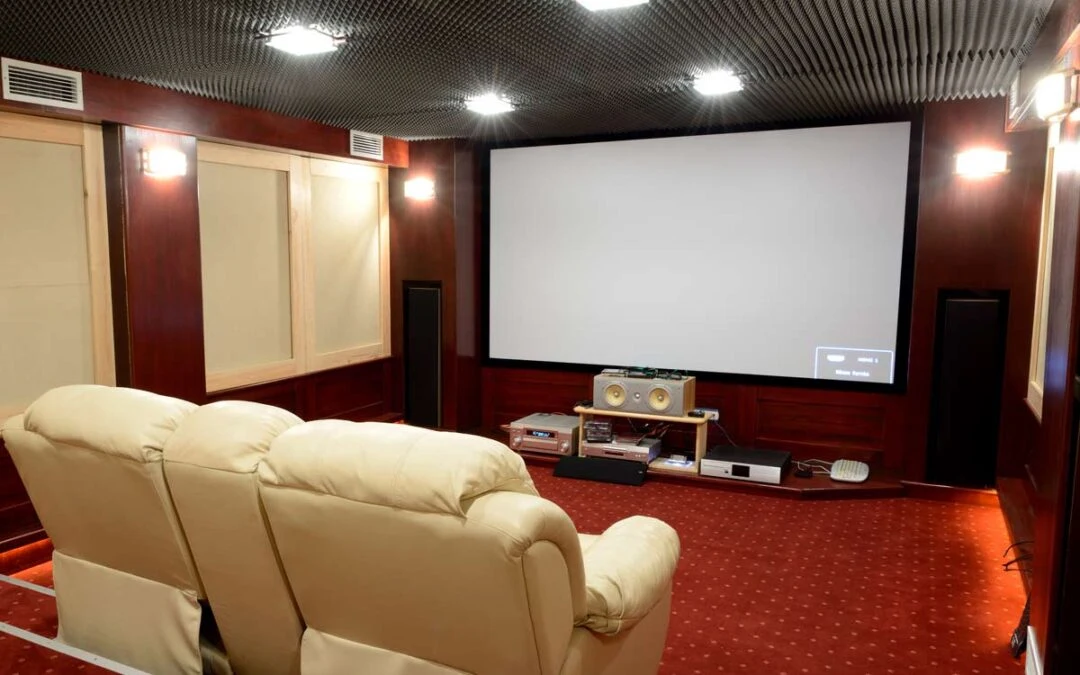In 2025, AI is transforming the way we experience entertainment in our homes. The integration of AI into home theatre systems is creating smarter, more immersive, and personalized viewing experiences. This shift is particularly noticeable in areas like sound, picture quality, and ease of use, making a home theater in Toronto more advanced than ever before.
The Growing Role of AI in Home Technology
The rise of smart home technology has brought AI into nearly every aspect of home life, including entertainment. AI enables devices to learn user preferences, predict needs, and adjust settings accordingly. In home theatres, AI is now a key component in delivering a more efficient and seamless experience for users.
With AI in the mix, home theatre systems are no longer just about playing movies or music—they’re becoming intelligent, adaptive environments that enhance every moment. From voice-activated assistants to advanced room calibration, AI is streamlining setup and usage. As AI evolves, home theatres are becoming smarter, and their integration with other smart devices is creating fully automated and connected homes.
Key AI Innovations Impacting Home Theatre Systems

Key AI Innovations Impacting Home Theatre Systems
AI is driving numerous innovations in home theatre systems that dramatically improve sound, picture quality, and overall convenience.
- Smart Audio and Visual Enhancements
One of the most noticeable improvements AI brings is in audio and video quality. AI algorithms help optimize picture resolution, enhance dynamic range, and provide better contrast. For instance, AI-based projectors and smart TVs automatically adjust brightness and sharpness based on lighting conditions, ensuring a consistent, optimal viewing experience.
Sound systems are also seeing significant upgrades with AI. Adaptive sound technology tailors audio to suit the room’s acoustics. It can analyze the space and adjust sound settings, ensuring the perfect audio experience every time. Whether it’s a soundbar or a full surround sound system, AI helps deliver richer, more immersive audio.
- Personalized Viewing Experiences
AI also personalizes the home theatre experience. By tracking what you watch, it makes recommendations based on your preferences. These systems learn over time, offering suggestions tailored to your taste, and even making adjustments to audio and visual settings according to your viewing habits.
For example, after watching a few action movies, the system might adjust audio to emphasize explosions and bass-heavy scenes, while softening dialogue sounds during quiet moments. This personalized experience goes beyond simply recommending movies—it optimizes every detail to fit your unique preferences.
- Automated Room Calibration and Setup
Setting up a home theatre can be a time-consuming process. But with AI, automatic room calibration is now a reality. AI can analyze the space, calibrate sound systems, and adjust video settings with just a few commands. This takes the guesswork out of setting up a home theatre in Toronto, making it easier for users to get a professional-quality setup without the hassle.
With this technology, new users can enjoy a fully optimized system right out of the box. AI-driven tools also simplify the setup process, removing the need for complex manual adjustments or professional help.
AI and Home Theatre Automation

AI and Home Theatre Automation
The future of home theatre isn’t just about picture and sound quality—it’s also about convenience and control.
- Voice-Controlled Systems and Smart Assistants
AI-powered voice assistants, like Alexa or Google Assistant, are becoming the backbone of home theatre automation. Users can now control their home theatre systems through simple voice commands, eliminating the need for remotes or manual controls. You can adjust the volume, change the channel, or dim the lights without lifting a finger.
These voice assistants are also connected to other smart devices in your home. For instance, when you’re about to start a movie, the system can adjust the room’s lighting and temperature automatically, creating the perfect atmosphere for an immersive experience.
- Predictive Features for Enhanced Convenience
AI systems go beyond simple commands—they predict what you might need. If you usually watch a movie at 8 pm, your home theatre can automatically power on at that time, adjusting audio and visual settings based on previous preferences. This kind of home automation makes using your home theatre system incredibly convenient, saving you time and effort.
These predictive features extend to content recommendations as well. For example, after a long day, your system might suggest a relaxing show or movie based on past preferences, helping you unwind without searching for something to watch.
The Future of AI in Home Theatre Systems
As AI technology continues to evolve, the possibilities for home theatre systems are expanding.
- Next-Generation AI and Content Creation
AI is also changing how content is created and personalized. AI-generated trailers and real-time content adjustments are making the viewing experience more dynamic. Imagine a movie that adjusts itself based on your preferences, changing its pacing or visual effects to fit your mood. AI is gradually making this a reality, creating more personalized and interactive content.
- AI Integration with 8K and VR
As home theatre systems move toward 8K resolution, AI will play an important role in optimizing the quality of ultra-high-definition content. It will help balance color, contrast, and sharpness, making sure that every pixel on the screen is as crisp and clear as possible.
In addition, AI is set to revolutionize virtual reality (VR) experiences. By integrating AI into home theatres, users will be able to enjoy immersive VR content with improved graphics, sound, and interactivity, creating a truly next-level experience.
- Continuous Learning and System Evolution
AI allows home theatre systems to learn over time. These systems adapt to the user’s preferences and behaviors, continuously improving the quality of the experience. As new content and technologies emerge, AI will evolve, automatically upgrading your system to keep it current and effective without needing manual intervention.
Benefits of AI Integration in Home Theatre Systems
The integration of AI into home theatre systems offers many advantages, making entertainment more enjoyable and efficient.
- Enhanced User Experience
With AI, the user experience is smoother and more personalized. The system learns what you like and adapts to suit your needs, making it easier to enjoy content without constant adjustments.
- Time-Saving and Efficiency
AI saves users time by automating many tasks, such as calibrating systems, adjusting settings, and selecting content. With fewer manual steps, you can enjoy a seamless experience from start to finish.
- Cost-Effectiveness in the Long Run
By enhancing the lifespan of equipment through intelligent maintenance, AI helps reduce the need for frequent upgrades. Moreover, AI can make the system more energy-efficient by turning off unused devices and adjusting power usage.
Take Your Home Theatre to the Next Level with Allfine Automation
If you want to experience the future of home entertainment, consider upgrading your system with AI technology. Allfine Automation can help you create a home theatre that is smarter, more efficient, and perfectly suited to your needs. Experience the latest innovations—get started today and transform your entertainment experience! Call us today at 416-800-8784.

